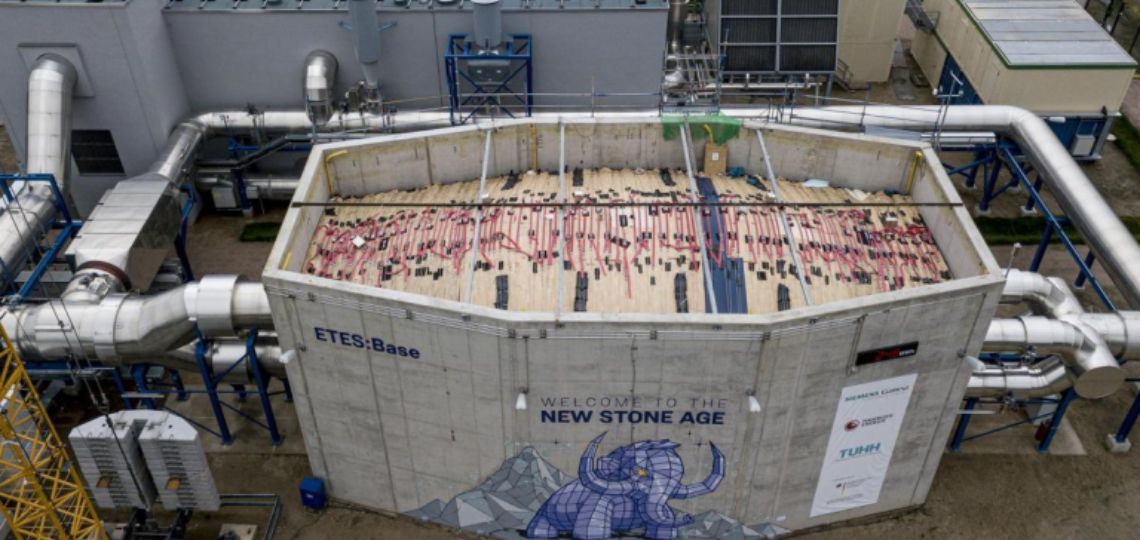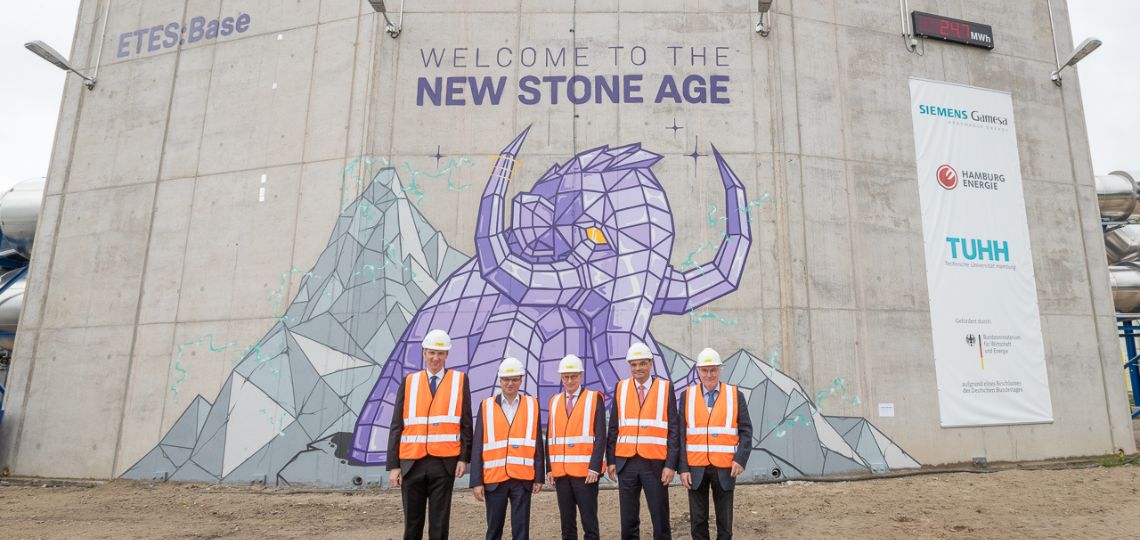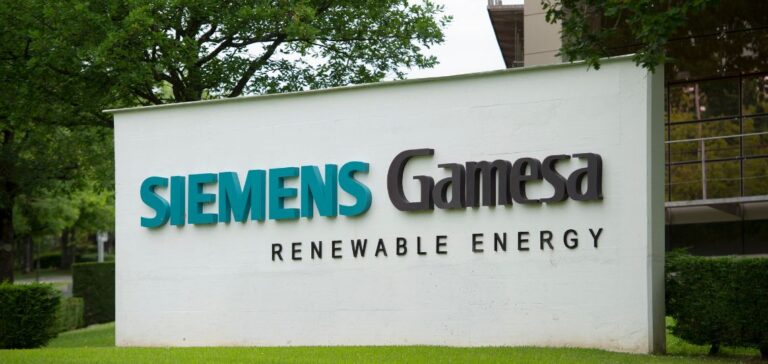Fossil fuels saved by Spanish renewable energy giant and offshore wind energy leader. Siemens Gamesa Renewable Energy is developing an electrothermal energy storage system that can store up to 130 megawatt-hours of electricity for a week in volcanic rock.
The ETES (Electric Thermal Energy Storage) solution
Siemens Gamesa, a company best known for its offshore wind turbines, is also a manufacturer of large-scale renewable energy technologies. One of the new business areas is energy storage, explains Clean Technica.
In early June 2019, the company announced the start of operations for its Electric Thermal Energy Storage System (ETES), which the company claims to be a world first. The pilot plant for this system is located in Hamburg-Altenwerder, Germany.
“With the commissioning of our ETES pilot plant, we have taken an important step towards the introduction of high-performance energy storage systems,” Markus Tacke, CEO of Siemens Gamesa Renewable Energy, told Clean Technica. “Our technology makes it possible to store electricity for several thousand households at low cost. We thus present a building block for the further expansion of renewable energies and the success of the energy transition.”

Storing energy for redistribution
Recharge News reports that the ETES (Electrical Thermal Energy Storage) pilot plant in Hamburg converts electrical energy into hot air, using resistance heating and a blower to heat around 1,000 tonnes of volcanic rock to 750°C. If required, the plant converts the stored thermal energy back into electricity using a steam turbine.
Thanks to efficient insulation, heat can be stored for a week or more – at a fraction of the cost of battery storage. Siemens Gamesa claims that the pilot plant can store up to 130 MWh for one week, which will be sold on the market by local utility Hamburg Energie.
“The aim of the pilot installation is to provide evidence of grid storage and to test heat storage extensively,” Siemens Gamesa said in a statement. “In a next step, Siemens Gamesa plans to use its storage technology in commercial projects and increase storage capacity and power. The aim is to store energy in the order of several GWh in the near future. One GWh is equivalent to the daily electricity consumption of around 50,000 households”.

ETES could give a second life to coal-fired power plants.
The ETES thermal battery can give coal-fired power plants a new lease of life as heat and energy storage centers, Hasan Özdem, head of technology and project management for Siemens Gamesa, told Greentech Media. This means that the idea that renewables are “killing” conventional coal-fired power plants will no longer necessarily be accurate.
“It was wind and solar against coal and gas power plants,” said Mr. Özdem. “We say no. ETES can give these conventional power plants a place in the energy future by transforming them into environmentally friendly storage facilities.”
ETES can be easily integrated into conventional power grids, as it reflects a century-old thermal generation technology. With the exception of the storage chamber, everything else is essentially what people have been installing in conventional power plants for decades. This includes only the water-steam cycle, steam generators, steam turbines and pipes.
“The only problem with coal-fired power plants is that they pollute the environment. That is, indeed, a very big problem. But if you take that away, this technology has been working very efficiently for decades. And the initial costs of these assets are very high. ETES is, for the time being, the only way to keep them running sustainably,” Özdem tells Greentech Media.
A legacy thermal power plant is by no means a prerequisite for ETES. They could be installed anywhere with a network connection. Building them on site or close to industrial users gives us access to a whole new customer base.






















